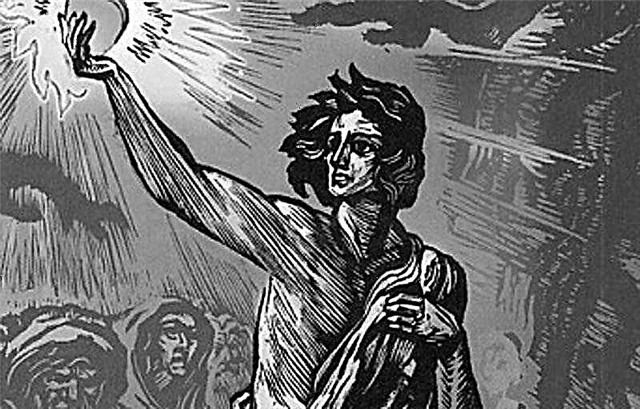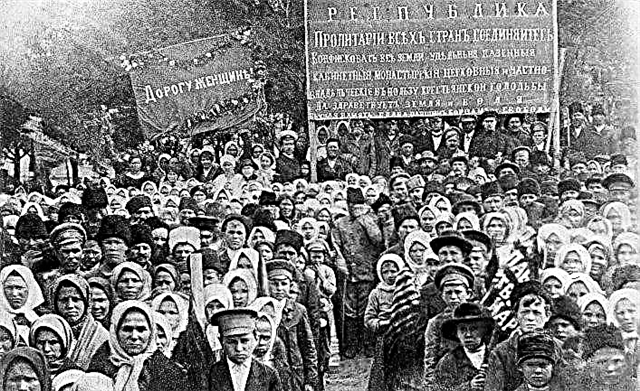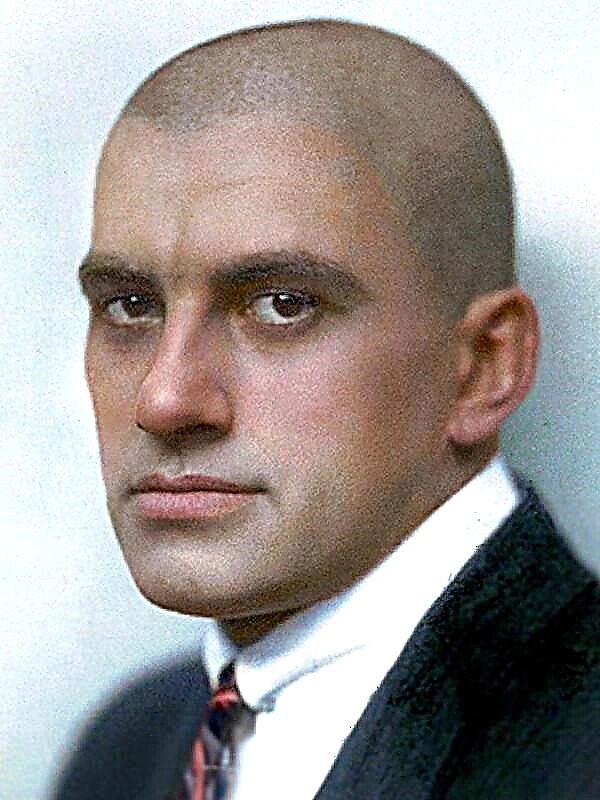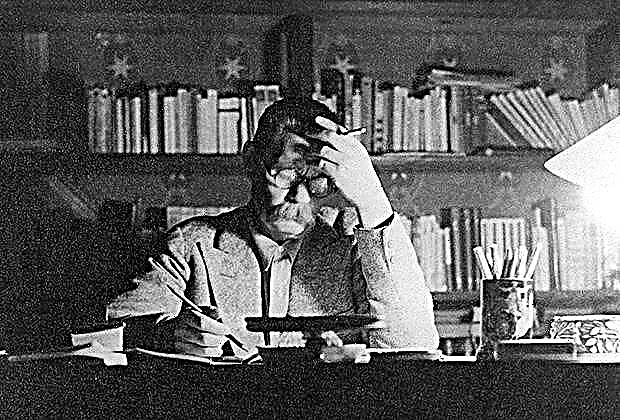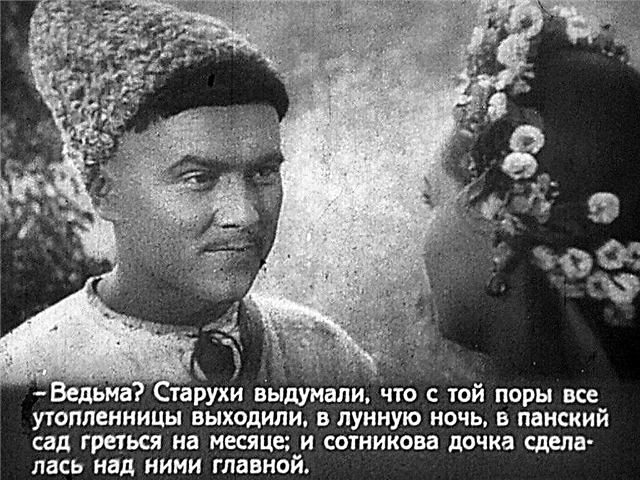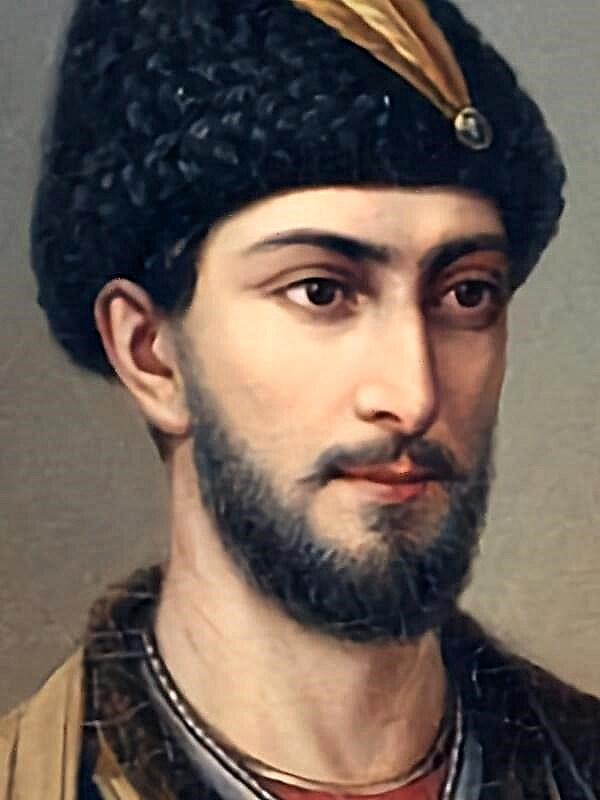The final essay is not only a test, but also an opportunity to improve your chances of taking the desired place at the university. It all depends on how you perceive this event. If you become hardened against him, then it will naturally bring only troubles, and if you take it for granted, you can benefit for yourself by collecting additional points. And for this, read our literary examples and add your ideas in the comments about what kind of work is missing on our list.
Content:
- 1 M. A. Sholokhov, “Quiet Don”
- 2 N.V. Gogol, “Taras Bulba”
- 3 I. S. Turgenev, “Fathers and Sons”
- 4 I. Goncharov, “Oblomov”
- 5 A. I. Solzhenitsyn, Matrenin Dvor
- 6 A. Pushkin, “Eugene Onegin”
- 7 L. N. Tolstoy, “War and Peace”
- 8 F. M. Dostoevsky, “Crime and Punishment”
- 9 I. Turgenev, “Mumu”
- 10 M. Gorky, “Old Woman Izergil”
M. Sholokhov, “Quiet Don”
The author of The Quiet Don, M. Sholokhov, believes that initially all people are kind, but the fate of many of them is so bad that they have to become hardened. For example, Gregory was a good fellow: he loved his family, worked diligently, honored Cossack traditions and did no harm to anyone. But his parents wanted to marry him against his will. The chosen one was the daughter of a family friend, Natalia Korshunova. The wayward hero succumbed to the onslaught of his father, but held a grudge against the family. He loved the married Cossack Aksinya, so for the sake of her he sacrificed a family hearth: he left his wife. He acted cruelly towards his wife, but didn’t he tell her honestly that he did not love her? However, it was she who at all costs wanted to get a man. This means that the reason for the appearance of cruelty is always rooted in injustice, which no one stupidly noticed.
In M. Sholokhov’s novel “Quiet Don”, the hero fiercely fights on both fronts in order to win a bright future from next enemies. However, after many years of wandering along other people's roads and goals, Gregory realized that he had stumbled when he took up arms. His destiny is to plow the land, sow bread, raise cattle and poultry. He is a peasant, not a soldier. But the explaining gentlemen confused him with their agitation, and now he is going to sow evil in order for good to come up. In the finale, he realizes that it is wrong, that you had to cultivate your lands, and not to water them with blood, then there would be peace. Goodness can never be achieved by cruelty, but none of the heroes realized this in time. As a result, the families broke up, and the Cossacks lost their centuries-old traditions, and the happy tomorrow never came.
N. Gogol, “Taras Bulba”
In N. Gogol’s novel “Taras Bulba,” the father educates his sons in fighting spirit, but the exercises were not enough for him. He wanted to organize a real battle, where young people show their courage. To do this, he removed the cat and sent the Cossacks to Polish lands, where the soldiers received a serious rebuff. After that, they surrounded the city of Dubno, where the townspeople died of starvation. Hundreds of people died due to the insanity of Bulba. Therefore, the reader does not greatly regret the old Cossack when his son leaves the army and dishonors his family. Andriy does not choose the warlike spirit of the Cossacks, but a calm, peaceful, settled life in love and tranquility. Taras himself is to blame for this betrayal, because the cruelty of good will never be achieved.
It’s difficult to show kindness in a war, because it’s a very cruel time when they spare no one. But there are exceptions, one of which was described by N. Gogol in the story “Taras Bulba”. Andriy fought against the Poles as part of the Cossack army. They decided to starve the city of the enemy, surrounding it with a blockade ring. At night, the young man did not sleep and saw how the servant of his lover, whom he had met in Kiev, made his way. She bitterly complained about the famine in Dubno and prayed to the Cossack for leniency. The young lady wanted to feed the dying mother. Andriy then shouldered a bag of bread and went to the enemy city. The young man could not refuse to answer this call. Women and children do not fight, but they die from war. The hero realized the injustice of this phenomenon and helped those in need, despite the risk.
I. Turgenev, “Fathers and Sons”
In I. Turgenev’s novel “Fathers and Sons”, the author draws attention to the cruelty of children towards their parents. They themselves do not realize what kind of pain they inflict on the family with their indifference. The sad consequences of this error we see in the book. Bazarov did not see his old people for three years, but came to them for only three days. The father barely dares to reproach his son, and the mother only sheds tears secretly. They are so afraid to upset Eugene, they walk along the string that he held over the abyss that separates one generation from another. But the hero does not seem to notice anything. In the foreground for him his interests, not the feelings of his parents. He did not even talk to his father when he arrived after three years of separation, although he did not sleep all night. Unfortunately, the man did not realize that he was wrong, but his parents kept their love for him even after his death. Only the hero’s mother and father visited the lonely grave. Thus, cruelty in the family inevitably leads to tragedy.
I. Turgenev portrayed cruelty and kindness in the novel “Fathers and Sons” by the example of two brothers, Nikolai and Paul. Nikolai Kirsanov became a devoted and quiet family man, he has wonderful children and his beloved Fenichka. Even class barriers did not stop him, because the girl was not a noblewoman. But his own brother, Paul, cruelly tyrannized his family. He did not approve of the marriage of Nicholas and Fenichka, in every possible way ignoring the young woman. It was also cold and rude that he received a guest who he simply did not like outwardly. Then the old man even calls Bazarov to a duel, not thinking about the consequences of his decision. At the same time, Nikolai is trying to smooth out the awkwardness of the conflict between Eugene and Pavel Petrovich. He listens carefully and analyzes what his son’s comrade says. He has no hatred against those who are different from him, the hero treats everyone kindly. That is why the author rewarded him with happiness, and he sends the proud and evil Paul into voluntary exile. Thus, good ultimately always triumphs over evil.
I. Goncharov, “Oblomov”
In I. Goncharov’s novel Oblomov, the protagonist is not distinguished by hard work and determination, but he is kind and trusting. His goodwill becomes a beacon that points the way to many people. For example, his childhood friend Stolz always finds rest and relaxation in Elijah’s company. He visits this particular person for decades in a row, and his sympathy does not fade with time. Also, the kindness of Oblomov attracts and conquers the beautiful Olga. Outwardly, Oblomov is ugly, his condition is unimportant, and even in conversation he does not shine with wit. But the heroine loves the beautiful and pure soul of a man much more than anything that secular goldfinches can offer. Ilya Ilyich is a big child who does not wish evil to anyone. He always obeys his friends, does not seek the benefits of communicating with them, takes all the blows of fate calmly and meekly. That is why Agafya Pshenitsyna so gently took care of him, so servant Zakhar loved so selflessly. Everyone who knew him appreciated the hero’s warm and big heart. Thus, kindness will always be appreciated by people as they deserve and will never become obsolete.
I. Goncharov in the book "Oblomov" describes a truly kind person. This is Andrey Shtolts, who always supports his helpless friend. Andrei got a difficult fate. A strict father sent him to the capital without patronage and a lot of money, saying that the young man himself must achieve heights. In the big city, the hero did not lose his head and began to work hard. Gradually, he made capital on trade deals. It would seem that the struggle for a place under the sun should have hardened him, but he retained friendliness, courtesy, and kindness. More than once he unselfishly rescued the lazy and infantile Oblomov, more than once he drove scammers away from him. In the final, the hero even took upon himself the responsibility of raising the son of the deceased, Ilya Ilyich. I believe that kindness is selfless activity for the benefit of another person, and Stolz is a good example of this.
A. Solzhenitsyn, Matrenin Dvor
In A. Solzhenitsyn’s short story “Matrenin Dvor,” the heroine is a truly kind person. This woman never asks for a fee for her help, everywhere she tries to be helpful. She does not condemn anyone and lives modestly, content with a small one: a dilapidated house, a lumpy cat, stunted ficuses and a skinny goat. Although fate was cruel to her, the old woman does not hold evil at people. She even gives her upper room to her adopted daughter, agreeing to give her last wealth, just to help Kira. Dragging a heavy load across the railway, the heroine falls under the train. The author sadly notes that there is no village without a righteous person, and people will have a very difficult time without the helpful Matryona. Kindness even in one person can change the whole world for the better, and the heroine also made the villagers a little better than they are.
In A. Solzhenitsyn’s story “Matrenin Dvor” there is a hero whose cruelty simply amazes the reader. Thaddeus once loved Matrena very much, but he was drafted into the army, and in the war he was lost without a trace. During this time, the family of the young man lost all hope of his return and asked Matrena to marry her youngest son. The girl, although she loved Thaddeus, could not argue, because times were difficult, and people needed a worker in the house. But then the soldier returned and was dumbfounded by betrayal. No one could reason him, he blamed the woman and brother. Time passed, but the resentment was not forgotten. Matrona was already unlucky: all the children died, her husband too. Then Thaddeus decided to give her a niece and did not help decisively in anything. The woman somehow pulled out her content, Kira matured, but then her father came up with a new way to ruin a relative. He insisted on transferring the maid of Matryna to his daughter. He enjoyed the sight as an old woman barely carries heavy boards. And in the end, even at her funeral, Thaddeus did not forgive that marriage. The man cynically shared the meager property of the deceased. But his cruelty cannot be justified, because the heroine helped his family in difficult times, and this is the only reason for her betrayal.
A. Pushkin, “Eugene Onegin”
Cruelty in raising children will never make them better. The consequences of domestic violence and aggression often lead to tragedy. For example, A. Pushkin described part of the biography of the mother of Olga and Tatyana in the novel "Eugene Onegin", where we see the cruel treatment of parents to the girl. She led a secular lifestyle, loved balls and receptions. On them she met an officer whom she fell in love with. But the family chose her husband for her, guided by their considerations of profit. Dmitry Larin was a closed county landowner, led a modest economy and barely knew his chosen one. The youth and beauty of the girl subdued him. However, the unfortunate heroine fought for her happiness, her tantrums and tears had no end. Parents were inexorable, and the wedding took place. The metropolitan coquette was taken to the wilderness, where she almost ran away from her hated husband. What did this violence lead to? The woman became aggressive and nervous, for her failure she took revenge on the peasants whom she beat and tormented. Even the meek spouse got from her, all control of the house was concentrated in her hands. Unfortunately, her children saw little maternal affection. As a result, family violence destroyed the future of the child and even affected the life of the next generation.
The kindness of loved ones can comfort us even in the most terrible moments, when, it would seem, life is destroyed before our eyes. Pushkin in the novel "Eugene Onegin" describes the situation when the nanny supported Tatyana, who suffered from unhappy love. This gentle woman never saw gratitude from the gentlemen for her labors, but devotedly devoted herself to serving the noble family. She nursed Tatyana from childhood, and then developed her mind with traditions and fairy tales from folklore. In the days of doubts and hardships of first love, a young girl went to the nanny for advice and help. Even her mother was not so close to her. The old woman, like Tatiana’s mother, faced cruelty in her youth, when she was married not for love. But she was not hardened, like a mistress, her heart remained kind, even despite a difficult fate. It was a simple peasant woman who was able to teach the master's daughter humility, perseverance and nobility. It was from her that the girl gained wisdom, so she remained faithful to her unloved husband, and did not follow the windy Eugene when he called her. Obviously, only kindness can help people overcome difficulties and adequately overcome difficult situations. She teaches and inspires us to moral exploits.
L. Tolstoy, “War and Peace”
Kindness can really change the world. We find confirmation of this in the epic novel by L. Tolstoy “War and Peace”. It is the kindness of the military leader that helps our army defeat the greatest army that conquered all of Europe. Initially, almost no one believed in the success of our soldiers, the power of Napoleon seemed indestructible. He triumphantly passed through the countries of all his opponents. However, there was one man who believed in the Russian people. This is Kutuzov. From the very beginning, he chose defensive tactics, retreated and hesitated, waited and did not give battle. What for? He pitied his people and valued them above all rewards and even above his own life. The emperor was angry with him for the shameful escape from the enemy, and the court dignitaries openly attacked the commander in chief. However, it was precisely such a struggle that brought our army an advantage: the invaders were tired of walking through the vast expanses, where the peasants also burned all the houses and grounds, so that the enemy soldiers had nowhere to sleep. As a result, the forced Borodino battle did not turn out to be a brilliant victory for the French, but an actual defeat. Morale has fallen, strength has exhausted. Kutuzov starved the French, and they themselves fled from Russia, and our people did not suffer the losses that Napoleon’s army could inflict. Thus, the kindness of the Commander-in-Chief in relation to the people saved our country and many of its citizens.
Kindness is especially important in the field of family relations. For example, the Rostovs from the epic novel by L. Tolstoy “War and Peace” were able to save their family thanks to this very quality. They were impoverished nobles, the power of the family died away day after day. All hope was concentrated in the children, who could help improve the situation. But the youth’s behavior only aggravated the need: Nikolai lost a large sum of money in cards, drank and intended to marry a poor relative, Natasha cheated on a rich groom and dishonored her family, Petya went to war, Vera got married and did not help her relatives in any way. But parents reacted calmly to all these incidents, they were always ready to help and help the children out of trouble, even if the young people themselves were to blame for their misadventures. In response to sincere kindness, children (for the most part) reciprocated and stopped thinking only about themselves. Natasha married Pierre, Nicholas married Mary, and they both ensured the well-being of their family. Now the Rostov’s affairs went smoothly, and new representatives of this kind did not need anything. This means that good relations between parents and children can solve any problem.
F. Dostoevsky, “Crime and Punishment”
Why do good people become evil and cruel? This reincarnation can be explained in F. Dostoevsky’s novel Crime and Punishment. Rodion Raskolnikov is a kind person with a sensitive and vulnerable soul.This feature of the character is clearly demonstrated by his dream, where he cries bitterly, pitying the poor horse, which was beaten to death by men. The reader also sees the hero’s indifferent attitude to the grief of strangers. Marmeladov, he leaves his last money, sympathizing with their loss. How did it happen that this particular man brutally kills two women, even without a personal motive? The reason is the suffocating atmosphere of the city, where the glaring social inequality is so desperately striking. While a few rich people travel around the capital in elegant crews, thousands of poor people are forced to give money-lenders the last belongings so as not to starve to death. Rodion himself huddles in a tiny room, drops out of school, which he is not able to pay, and his sister wants to get married by calculation, in order to provide for his family. The hero cannot put up with lawlessness, he wants to change the world, so he steps over himself and becomes the one who is capable of cruelty.
Even a kind person can become hardened if he encounters insurmountable difficulties that will break his will. Such an example was described by F. Dostoevsky in the novel Crime and Punishment. Marmeladov had a kind heart, because he married a poor widow with small children out of pity. He knew that the woman and her family were in danger of poverty, and saved her from shame, making it possible to lead a modest but decent life. However, over time, something in the man broke, the load was too heavy. Taking on a huge responsibility, he could not cope with it. He began to fill his stress with alcohol, lost his job, and the whole family was left without a livelihood. Dependence on alcohol completely seized Semyon Zakharovich, he lost his dignity, fell. His own daughter earned money on the panel, and he drank it, depriving his wife and children. This is real cruelty, for Sonya drank pennies to Sonia at the cost of shame and humiliation. How did he get to such blasphemous behavior? The reason is that he became a slave to a bad habit and lost himself. Physical decline and moral decline turned Marmeladov into a cruel egoist, capable of only satisfying his whims at the expense of other people.
I. Turgenev, “Mumu”
Cruelty to animals can lead to the depreciation of important moral values that ensure human life in society. So, in I. Turgenev’s work “Mumu”, the hero drowned the dog on the orders of the lady. The tyrannical woman disliked the servant’s pet, so she tried by any means to force him to get rid of the animal. The author draws a subtle parallel between the fate of Gerasim and his favorite. The janitor, like the dog, is not his own master. He belongs to the landowner, who can do whatever he wants with him. A man sits on a leash and executes commands, and a powerful noblewoman trains him. Obviously, for the lady there was no difference between man and animal, she considered everyone to be her property, which has no feelings and opinions, will and rights. Therefore, she brought the peasants, as the inhabitants of the barnyard, regardless of their desires. Trying to cure Kapiton of alcoholism, she gives him Tatyana against her will, breaking the heart of Gerasim, who is in love with a girl. Thus, cruelty to animals provokes the appearance of such an attitude towards people.
Cruelty to any living creature cannot be without consequences. Moreover, the one who allowed himself to apply it becomes the main victim of this aggression. An example was described by I. Turgenev in the story “Mumu”. The lady forced her servant to get rid of the dog, which she did not like. Realizing his lack of rights, Gerasim realized that he could not bear responsibility for those who were dear to him. But he could not leave Mumu, this would be a betrayal of her. Then he decided to rid the dog of the pangs of loneliness. Drowning her, the janitor himself broke the chain and went into the village, where he lived alone until his death. Having dealt with the animal, the man fell out of the system of social relations and could not find in his soul a place for love. These are the grave consequences of cruelty to our smaller brothers.
M. Gorky, “Old Woman Izergil”
Who can be called a kind person? One who sacrifices his interests in order to help other people. One of the most famous examples that fit the description is Danko, the hero of the story "The Old Woman Isergil." The young man led his people out of the deadly thicket, paying for his life's salvation. In the hard way, he alone did not lose faith in success, and his fellow tribesmen only reproached him for his arrogance and stupidity. However, the daredevil was not afraid of criticism and did not hold evil at unbelieving people. He found the strength to understand them and forgive them for neglect and cowardice. When the travelers refused to follow Danko at all, he tore his heart out of his chest and illuminated their path to a new life. For his feat, the young man did not ask for anything in return. He let out his last breath, rejoicing for the rescued tribesmen. This is how we imagine a kind person - a responsive, generous and noble figure who helps with deed, not with a word.
Cruelty is a direct result of indifference to people. We are convinced of this by looking at Larra, the hero of the story “Old Woman Isergil”. The young man was too proud of his origin, so he despised his fellow tribesmen. He was indifferent to their laws, feelings and traditions, and therefore did not see anything wrong with the murder of a girl who did not reciprocate. When the elders assessed the degree of cruelty of the son of an eagle and an earthly woman, they expelled him from the tribe. At first, the egoist remained indifferent to this event, but after many years he realized what a terrible punishment he had undergone.

